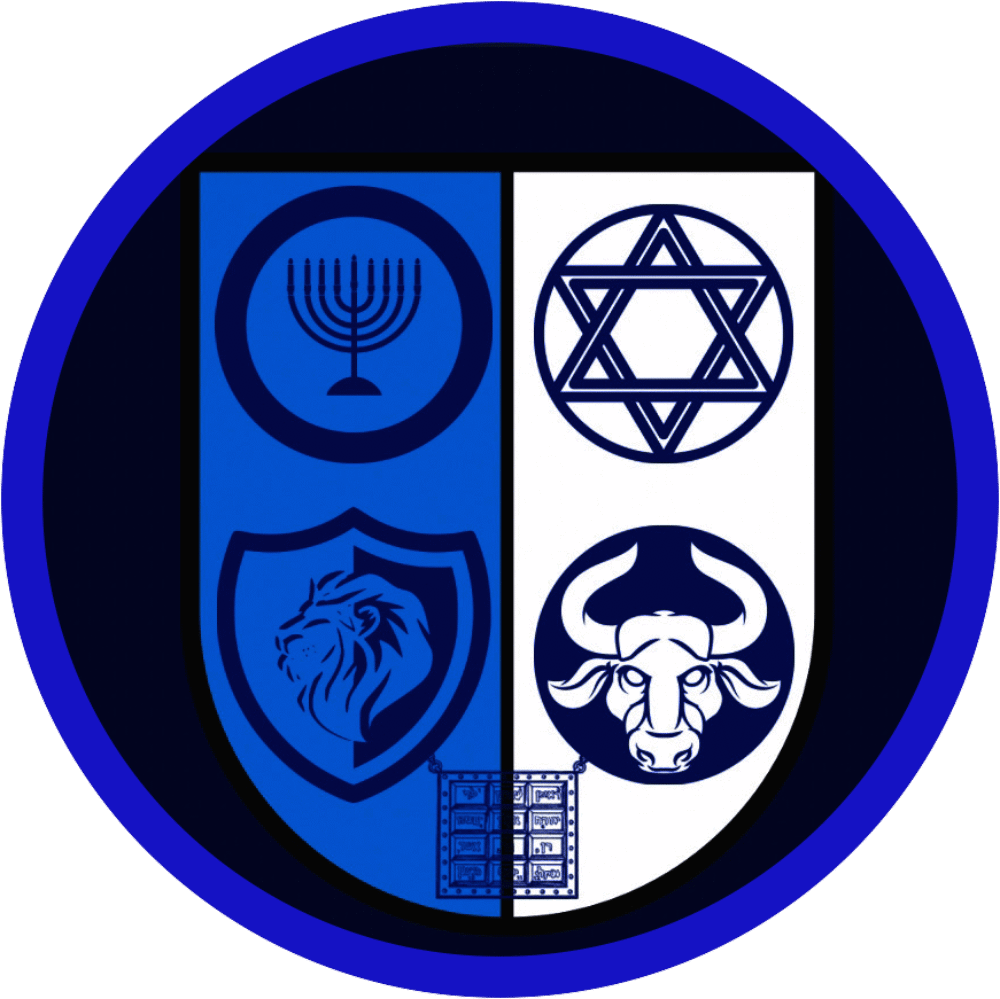
Parashat Vayera is the 4th weekly Torah portion in the annual Jewish cycle of Torah reading.
The sacrifice of Isaac (chapter 22) is one of the most debated stories in the Torah, not only for Jews, but also for Christians and Muslims (the latter simply mistook Isaac for Ishmael). In Jewish tradition, there are countless commentaries and interpretations that try to find an explanation for such a strange story. Earlier, the Lord promised Abraham offspring as numerous as the stars in the sky, made a covenant with him and explicitly told him that this covenant would continue through his son Isaac. And now he wants him to sacrifice him and literally cut up and burn everything that God promised him? How can G-d even ask for a human sacrifice? All the interpretations we have have one weakness – we know how it will turn out, that G-d stops Abraham at the last moment and instead of his son, Abraham sacrifices a lamb that he sees in the bush. But let’s try to look at the story step by step.
Abraham, who once left his father’s house at God’s prompting (lech lech!), finally has everything he wanted – he has two sons (even two, even though he had to send Ishmael away because of Sara, the Torah says nothing about him not loving Ishmael), he is doing well, everything is working. And then one day the Lord spoke to him and asked him: “Take, please, your son, your only one, whom you loved, Yitzchak, and go for yourself (lech lecha) to the land of Moriah and raise him there as a burnt offering (olah) on one from the mountains, as I tell you!” (Genesis 22:2). Olah, the term for a burnt offering, also means “to raise”. The last time Abraham heard the words “lech lech” from G-d, he was asking him to step out of the world and the traditions he knew. So what does G-d ask of him now? What should he do now? (As Eli noted, in the first lech lech Abraham is to sacrifice his past, in this his future.) Abraham does not know, but he acts. He takes two servants, a knife, firewood, and Isaac (he is 37 years old at the time, according to rabbinic tradition, which relies on Sarah’s death occurring immediately after the sacrifice of Isaac-Sarah is literally struck when she discovers that Abraham and Isaac have left and what they took for the journey) and they set out on a journey that lasts three days. What’s on Abraham’s mind? What about Isaac? We know that he will ask his father where the animal for sacrifice is and Abraham will answer him that G-d himself will look for a lamb…Isaac is not stupid, and moreover in the surrounding cultures it is a common practice to sacrifice one’s first-born children, yet he continues his journey with his father. Does he believe, like his father, that “something” will happen? And does he trust his father or G-d? When he arrives at the place, he sets up an altar, binds Isaac (a grown man in full strength, he cannot do this without his consent) and places him on the altar. He is evidently waiting for “it” to come, because the Torah describes literally every move he makes (he stretches out his hand, picks up a knife). Finally, the voice of an angel stops him and tells him that he has recognized that he fears G-d, but he does not use the term Adonai, but Elohim. So who does Abraham fear? According to my interpretation (and I am not alone), Abraham did not understand exactly what G-d was asking of him. It is rather surprising that he even accepted the idea that G-d could even ask him to sacrifice his own son (if we believe that G-d is good, then logically he cannot ask for human sacrifices), but in the surrounding civilizations this was a common phenomenon. So does this second “lech lech” mean a repeated call to abandon all elements of the civilization from which it arose? Including the mere thought of human sacrifice? If that is the case, then Abraham failed when he did not understand the challenge and was really going to sacrifice his son. On the other hand, he showed great sensitivity when he was able to hear the voice of G-d’s messenger when he called to him (the fact that the most fundamental part of the story is that Abraham did not sacrifice Isaac is developed, for example, by Emmanuel Lévinas). The mark of religious fanatics is that they ruthlessly do what they think G-d asks of them without question, even when they commit atrocities that defy reason. That they don’t listen to the correction from heaven..
Because he heard the voice of the messenger of G-d, obeyed and did not sacrifice his son, even though he thought that G-d wanted him to, Abraham was blessed and with him all his descendants and all the people of the earth. For even entertaining the idea that he should sacrifice his son, but Abraham paid – poor Sarah died, and given that he returned to the servants alone, it can be assumed that the relationship between Abraham and Isaac was strongly marked by the events (I’m not surprised him).
As you may have noticed, my comment is full of questions and contains only a few answers. And I don’t know if I’ll ever know the answers. As Eli also noted, everyone has their own Abraham…
I cannot but quote this midrash: G-d did not immediately tell Abraham which son to sacrifice. Talmud Sanhedrin 89b records this conversation:
G-d said, “Please take your son.”
“But I have two sons, which one should I marry?”
“your one and only”
“But both are their mother’s only son”
“whom you fell in love with”
“But I Love Them Both”
“Isaac”
Chassidic Parashat
Avraham Is The Model “Mentch”
Although none of the 613 mitzvos are counted from Vayera, in Rashi’s commentary on the Parsha (which is drawn from Midrash and Talmud), are dozens of examples of Derech Eretz mitzvah-lessons. Hospitality and Bikur Cholim (Visiting the Sick) are usually considered part of the mitzvah of G’milus Chasadim (Loving Kindness), but many of the details are deduced from the
behavior of Avraham Avinu.
Last week in Parshas Lech Lecha, we saw the idea of Derech Eretz Kadma L’Torah.
(the way of the world precedes the Torah).
In the very first verse in the Torah, Rashi, in his classic commentary, asks a question so penetrating, that in the first moments of our new foray into learning the Torah, we are catapulted into immediate soul searching. What is our relationship to the Torah and what is our place in it?
Rashi asks, why does the Torah begin with the account of creation and the subsequent stories of the lives of the Patriarchs (Avos) and Matriarchs (Imahos).
If the Torah is a book of laws (Zohar, Torah is from the word hora’ah, instruction), then why doesn’t it begin with the first mitzvah, the sanctification of the new moon and the declaration of Rosh Chodesh?
One of the most compelling answers to this question is found in the Midrash (Vayikra Rabbah 9:3). Derech Eretz Kadma L’Torah. The way of the world precedes the Torah.
Derech Eretz here refers to proper mannered behavior, to be the exemplary
person that is truly a reflection of the Creator. The study and acquisition of these
character traits are a prerequisite to the acquisition of Torah knowledge. From where is Derech Eretz learned? From the Avos and Imahos. Before we can get into the laws of the Torah a person must have Derech Eretz. That is why the Torah begins with the stories of the lives of the Avos.
Look at how relevant this concept really is. Although none of the 613 mitzvos are counted from Vayera, in Rashi’s commentary on the Parsha (which is drawn from Midrash and Talmud), are dozens of examples of Derech Eretz mitzvah-lessons which we learn from the lives of the Avos. Hospitality and Bikur Cholim (Visiting the Sick) areusually considered part of the mitzvah of G’milus Chasadim (Loving Kindness), but many of the details are deduced from the behavior of Avraham Avinu.
Here are a few examples:
(Bereishis 18:1) – Hashem came to visit Avraham, who is recovering from his circumcision at the age of 99. He is teaching us the mitzvah of Visiting the Sick. There is perhaps a lesson concerning our relationships with the elderly and infirm. Often we don’t give them credit for understanding their own needs, instead insisting that they follow “conventional wisdom”. For Avraham, rest was not what he needed. Even though Hashem thought that Avraham needed a short respite from his outreach activities, Avraham knew that that was what was lacking for him. Therefore Hashem sent the angels his way conceding to Avraham’s self prescribed treatment.
(Bereishis 18:1) – Mamre – From Mamre we learn HaKaros HaTov (gratitude). Mamre gave Avraham the advice to go ahead with his circumcision and not to worry about what the rest of the world might think. So Hashem came to visit Avraham in Mamre’s territory as a reward for his assisting in Avraham’s circumcision.
(Bereishis 18:3) – “VaYomer Adonay. . . ” (translated as ‘my lord’) From is an
example to honor elders. Rashi tells us that Avraham spoke in the singular even though there were three angels. He addressed his remarks to the oldest of the angels in order to accord him honor.
“VaYomer Adonay. . .” – (translated as ‘my G-d’) Avraham, who is talking to Hashem,asks Him to wait a minute so that he can go to the strangers in the distance and welcome as guests. The Midrash states that they had the
appearance of Arab idol worshippers who revere the dust on their feet. Indeed, the Sages learn from this episode that Hachnosas Orchim is greater than entertaining the Divine Presence. It is one of the mitzvahs for which reward is reaped in this world as well as in the world to come.
(Bereishis 18:4) “Speak little, but do much.” (Pirkei Avos 1:15) This is an apt description of Avraham Avinu. He offers the angels only some water to drink and some bread to eat, but in the end he serves them a feast which he and Sarah prepare. Avraham Avinu and Sarah Imanu are the role models for the honored Jewish tradition of hospitality. (Bereishis 18:5) – Avraham immediately sat them down and gave them food and drink. (Bereishis 18:7) – He slaughtered 3 calves in order to give each one a tongue (with mustard) which was considered to be a delicacy. Certainly one tongue is enough for three men, but Avraham wanted to honor his guests here in two ways. A part of a tongue is a nice piece of meat, but a whole tongue is a very significant portion, a display of his regard for the guests. Secondly, by serving them each a whole tongue, each guest received an equal portion thus eliminating any possible
offense or injured pride. (Bereishis 18:8) – Though as angels they required no physical food. the guests ate, in adherence to local custom, returning to Avraham to honor he showed to them. In reality, says Rashi, they only pretended to eat. (Bereishis 18:9) – Rashi brings an interpretation of the unusual dots on top of the word “where ” to teach that when one is staying in a lodging he should ask the lady of the house about the welfare of her husband, and the husband about the welfare of his wife.
The angels asked Avraham where Sarah was even though they already knew. One reason that they asked Avraham was to cause him to remember that she was in her tent and thereby remind him of her exemplary trait of modesty, further endearing her to him. Sarah Imanu has been emulated throughout our history by the traditional modesty of the Jewish woman. Another interpretation is that they were looking for Sarah to pass her the Cup of Blessing that was used in the Grace after meals. Therefore a husband should make sure that his wife gets a sip of
wine from the Cup of Blessing. (Talmud Tractate Baba Metzia 87a)
(Bereishis 18:16) – When it came time for the Angel/Guests to continue on their way they rose to leave. Avraham, in spite of his weakened condition, also got up to escort them on the way. “And he sent them. . .”, Rashi tells us that Avraham didn’t neglect this final decisive aspect of Hachnosas Orchim, escorting the guests on their way insuring that they were on the right path.
Avraham Plants A Tamarisk Tree (Bereishis 21:33)
The Tamarisk is called in Hebrew Ashel. (Aleph, Shin, Lamed) Rav and Shmuel (Tractate Sotah 10a) disagreed on what over exactly what this ASHEL was. Rav held that it was a real tree that provided fruits for Avraham’s guests. Shmuel held that Avraham established an inn for guests and travelers. We also saw that Avraham had the angels sit under a tree (his inn?) when they first arrived. It could be the same tree and both explanations are fitting.
ASHEL is also an acrostic.
A = ochel (food)
SH = shtiah (drink)
L = levya/lina (escort/sleeping accommodations)
These are the basic components of proper Hachnosas Orchim, taking care of Guests.
Once a Jew came to R’ Levi Yitzchok of Berditchev to pour out his heart. He was a
well to do business man and had dedicated a substantial amount of money and personal time to the mitzvah of Hachnosas Orchim. He had a special wing in his house built for the various guests who came his way, including a staff of cooks, maids and attendants to see to their needs. His homemade beer and wine, and freshly baked bread was served to his guest just like to his own family. The wealthy were treated like royalty, and the poor were treated like the wealthy. What was wrong?
“Rebbe”, lamented the gentlemen, “I can’t believe my eyes, I can’t believe that it is true. Early this morning my entire estate burned to the ground. Everything was consumed, nothing is left.”
“If it was only my house I wouldn’t be so distraught”, he continued in a pained voice, “but the entire Hachnosas Orchim project is lost. I don’t know why this. What did I do to warrant such ruin?!” The Berditchever sunk deep into thought for a few minutes then looked up compassionately at the man standing in anguish before him.
“Tell me”, he began, “when the guests came, did you give them food (Ochel) to eat?”
“Yes”, answered the distraught man, “I gave them the my best. Fresh bread and vegetables from my garden were always on the tables. The chickens were from my own coops. I could go, but believe me Rebbe, nothing was spared.”
The Berditchever continued. “And when they came they also received drinks?” (Shtiah) “Yes of course. I supplied homemade wine and beer, and water from a newly well dug specifically for the guests.”
“And when they left”, queried the Berditchever, “did you give them an escort
(Levaya) out of town like Avraham Avinu did for his guests?” (Bereishis 18:16)?
“Well that is one thing that is very difficult to do”, conceded the man. “Since I am either at my business or busy with the guests still on the premises, I would have a hard time accompanying each guest on his way.”
“Well”, concluded the Berditchever, “that is your answer.” “You see, a Jew is required to provide his guest with ASHEL (food, drink and escort). You however, only provided them with Aish (food and drink, but aish also means fire). AiSH is what you got in return.”


